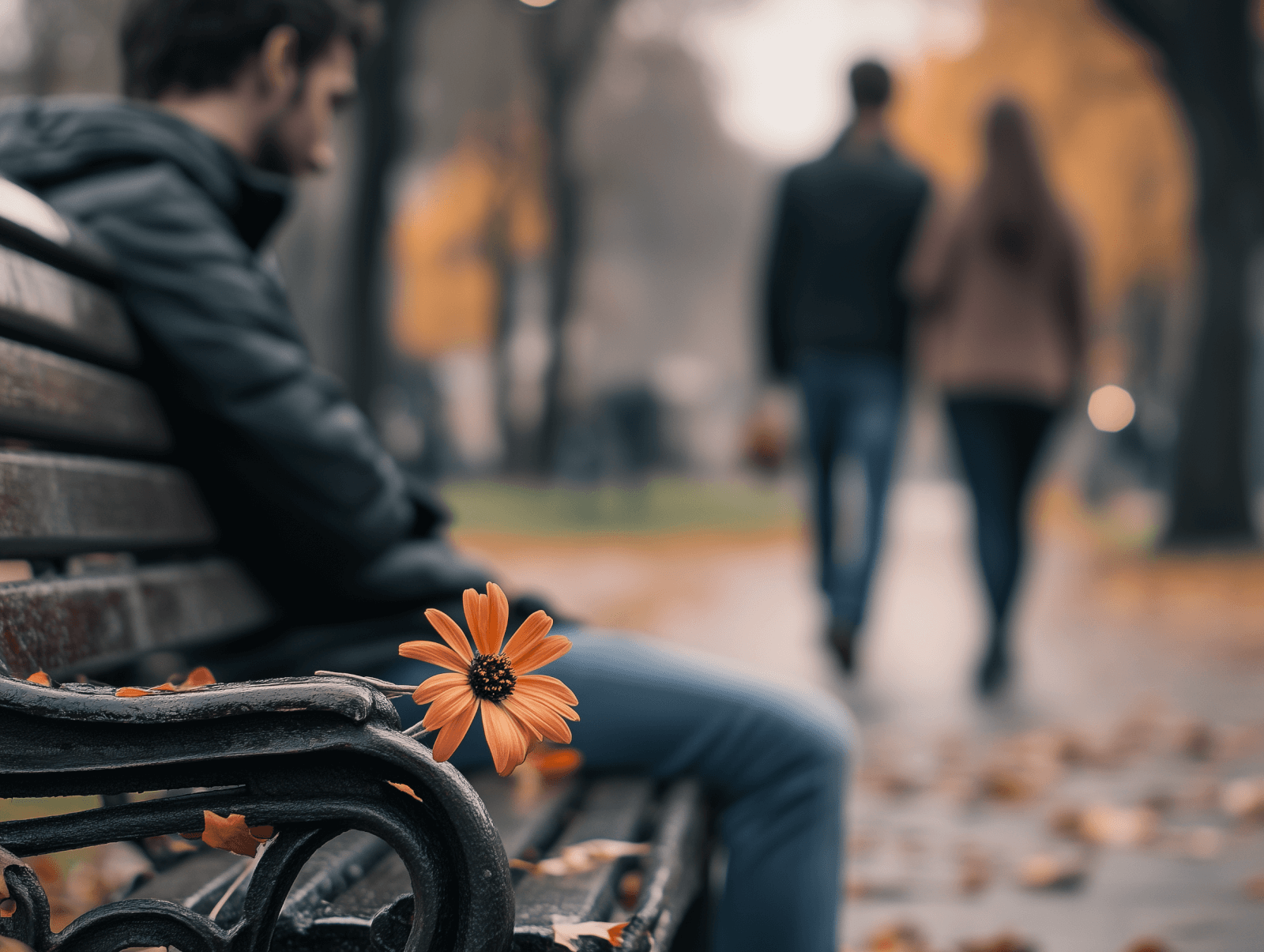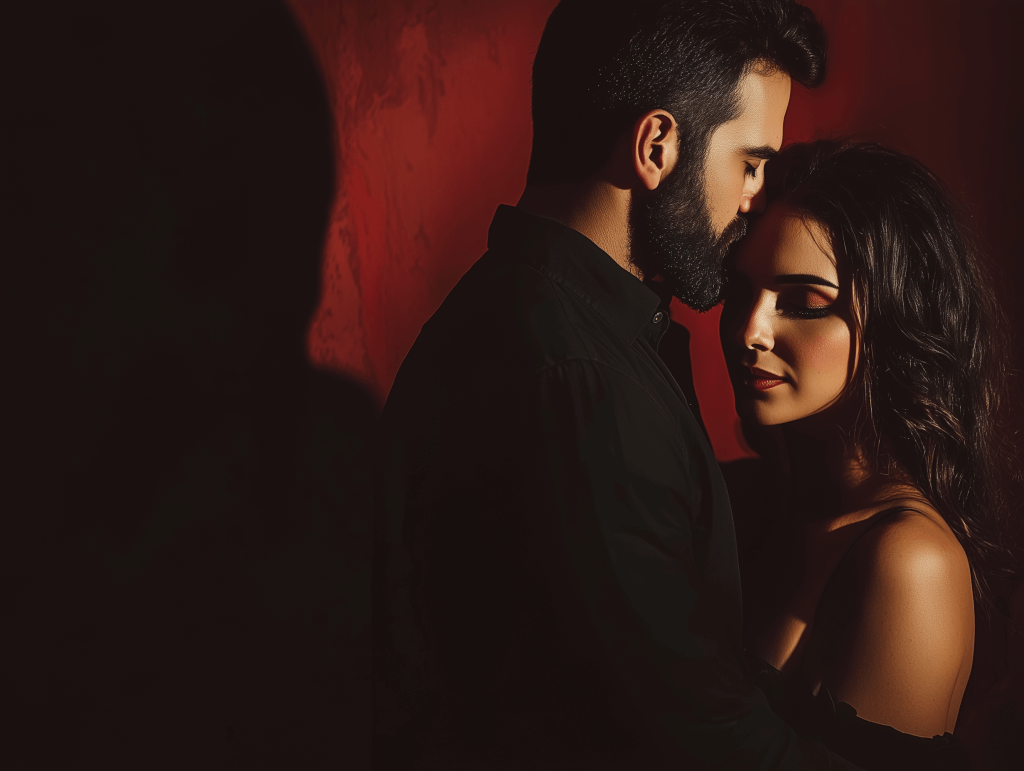What is Unrequited Love?
Uncorresponded love or unrequited love—it’s a term we’ve all heard at least once, and for many, it’s a situation we’ve experienced, sometimes in the most heart-wrenching ways. But what exactly does it mean, and how does it feel to be in love with someone who doesn’t share those same feelings?
At its core, unrequited love refers to a one-sided love where one person has deep, often intense feelings for someone who does not reciprocate those feelings. It’s a love that is not returned, and in many cases, it can leave the person in love feeling confused, vulnerable, and heartbroken.
The pain of uncorresponded love can feel like you’re trapped in an emotional limbo, where you are constantly questioning your worth and wondering why you aren’t enough for the person you desire. It’s one of the most challenging emotional experiences because, as much as you want the other person to love you back, it simply isn’t happening.
In this article, we’ll take an in-depth look at the emotional rollercoaster that is unrequited love—what it feels like, the signs that you might be dealing with it, and how to move on from this painful experience. Whether you’re currently struggling with unrequited love or are trying to help someone else heal, this guide will provide valuable insights and advice.
What It Feels Like to Experience Unrequited Love
When you experience unrequited love, it often feels like your emotions are being tossed around like a ship in a storm. You might feel ecstatic when you’re around the person, but at the same time, there’s a sense of dread because deep down, you know that your feelings are not returned. It’s confusing and emotionally exhausting.
It can start as a simple crush, but over time, the feelings intensify. However, no matter how hard you try, there seems to be no signs that the other person feels the same. For some, uncorresponded love leads to obsession. You might find yourself constantly thinking about the person, wondering what they’re doing, or even imagining a future with them that’s not going to happen.
In the worst cases, unrequited love can make you feel worthless. You might start questioning your appearance, your personality, or your social standing, wondering if there’s something inherently wrong with you that makes you unworthy of their love. It can also trigger feelings of inadequacy, where you feel like you’re not “good enough” for the person you love.
But here’s the thing: Unrequited love isn’t about being “less than.” It’s a situation where two people simply don’t feel the same way about each other. It’s important to recognize that this has nothing to do with your worth—it’s just a mismatch of emotions.
“Love isn’t about forcing someone to feel something they don’t feel.” – Anonymous
The emotional turmoil that comes with unrequited love can be amplified by the sheer amount of time talking to the person without receiving the same affection in return. Some people spend an embarrassing amount of time hoping that the person will eventually come around. This can lead to disappointment after disappointment. In the end, it may feel like your love is wasted, but it’s important to remember that healing is possible.
Signs You Are Experiencing Unrequited Love
Unrequited love can be a confusing and painful experience, especially if you’re not sure whether your feelings are being returned. Often, it’s difficult to acknowledge the truth, especially when you’re holding onto hope. However, by paying close attention to certain signs, you can better understand whether you’re in a situation of unreciprocated love.
1. Lack of Romantic Interest:
One of the clearest signs of uncorresponded love is when the person you’re in love with does not seem to share the same romantic feelings. They may treat you as a friend or may not acknowledge the depth of your feelings at all. It’s a situation where, despite your efforts to show affection, there’s no visible or verbal response from them that indicates they feel the same way. This lack of romantic interest can lead you to feel like you’re investing a huge amount of time talking to someone who simply doesn’t care about you in that way. As much as it hurts, it’s essential to recognize that their feelings may not align with yours.
2. Physical and Emotional Distance:
In any healthy relationship, there should be an emotional and physical connection. If the person you’re in love with keeps their distance both physically and emotionally, it’s a major red flag. They might not initiate contact, avoid spending time with you, or show disinterest when you try to connect. If this person doesn’t prioritize you or seem emotionally invested in your well-being, it might indicate unrequited love. This emotional distance can feel particularly painful, especially when you feel like you’ve spent an embarrassing amount of time trying to make them see you as more than just a friend. In situations like this, it’s vital to realize that their lack of effort means the emotional bond may never form.
3. No Effort to Rekindle the Relationship:
If you find yourself constantly trying to keep the connection alive, but the other person doesn’t seem to care, this can indicate that your feelings are unreturned. You may have spent an embarrassing amount of time thinking about them, sending messages, or planning ways to make them notice you, only to get little to no response. It’s essential to understand that in healthy relationships, both parties make an effort to nurture the bond. If you’re the only one putting in the work and there’s no effort coming from them, it’s a huge sign that the love is one-sided. If they’re not willing to reciprocate your feelings, it might be time to acknowledge that they’re not the right person for you, no matter how hard you try.
4. They’re Interested in Someone Else:
Another painful indication of unrequited love is when the person you’re in love with becomes interested in someone else. This can be especially tough to accept, but it’s one of the clearest signs that they don’t feel the same way about you. If they’re investing time and energy into someone else, it’s crucial to let go of the false hope and recognize that your love is unreciprocated. This realization can be challenging, but it will allow you to heal and focus on finding someone who truly shares your feelings. When you see them with someone else, it can feel like the biggest mistake people make is refusing to accept reality and continuing to pour effort into a relationship that will never be.
5. Avoiding Conversations About Feelings:
When you try to open up about your emotions or talk about the potential for a romantic relationship, and the person avoids the conversation or doesn’t engage, it’s a sign that they may not be interested in taking things to the next level. This can be especially difficult when you’ve already invested a significant amount of time talking to them about your feelings, only for them to dodge the subject. People who are in uncorresponded love often try to bring up their feelings, but if the other person consistently shuts down those conversations, it’s a sign that they are not emotionally available. Avoiding discussions about feelings is an indicator that they might not be open to deepening the relationship.
Recognizing the signs of unrequited love isn’t easy, but it’s essential for your emotional well-being. It’s crucial to understand that love isn’t always reciprocated and that holding onto feelings for someone who doesn’t feel the same way can lead to more pain and frustration. Accepting that your love is unreturned doesn’t diminish your worth, but it does open the door to healing and eventually finding someone who will appreciate you fully. Take the time to focus on yourself, work on your personal growth, and understand that the right person will come into your life when the time is right.
Coping with the Pain of Unrequited Love
Dealing with unrequited love can feel overwhelming, especially when you’ve invested so much emotional energy into someone who doesn’t feel the same way. It’s not something you can simply “get over” overnight, but with time and the right strategies, you can begin to heal from the pain. While the journey may be long, there are ways to cope with unreciprocated love and move forward.
1. Accept Your Feelings:
The first step toward healing from unrequited love is to accept your emotions fully. Don’t try to suppress them, no matter how painful they may be. Allow yourself to feel the sadness, frustration, and even anger that comes with loving someone who doesn’t return your feelings. Suppressing or denying your emotions will only make the process of moving on more difficult. By embracing your emotions, you give yourself the opportunity to heal, learn from the experience, and eventually move on. Don’t be hard on yourself for feeling hurt; it’s a natural response to uncorresponded love.
2. Give Yourself Space:
One of the most important things you can do to cope with unrequited love is to give yourself space. While it may seem tempting to continue communicating with the person you’re in love with or to keep checking in on them, doing so will only keep the emotional wounds open. Creating physical and emotional distance is essential for healing. Taking a step back allows you to gain perspective and begin the process of detaching. It also helps prevent you from becoming obsessed with their actions and reactions, which can prolong the pain. Take a break from their social media, avoid unnecessary contact, and give yourself the freedom to move on.
3. Focus on Yourself:
When you’re in love with someone who doesn’t feel the same way, it can be easy to lose sight of who you are. You might prioritize their happiness over your own, and as a result, forget about your own desires, passions, and well-being. It’s essential to refocus on yourself during this difficult time. Invest in activities that make you feel good, whether it’s pursuing hobbies, exercising, or spending time with friends and family. Reconnect with what makes you feel strong and happy. This not only helps to rebuild your self-esteem and self-worth, but it also shifts the focus back to your own personal growth and happiness, reminding you that you are deserving of love and respect.
4. Reflect on the Experience:
While reflecting on uncorresponded lovecan be painful, it’s important to gain closure and understanding from the experience. Ask yourself what you can learn from this situation. Did this experience teach you something about your emotional needs and desires? Did it help clarify what you value in a relationship? By examining what you’ve learned, you can gain insight into the type of connection you want in the future. Reflecting also gives you the opportunity to accept that this person wasn’t the right match for you, even if it’s hard to face that reality. This self-awareness is a crucial step in healing.
5. Seek Professional Support:
Coping with unrequited love can be incredibly difficult, and sometimes, you may need extra help to navigate your emotions. If you find yourself struggling to move on, talking to a therapist or counselor can provide valuable support. They can help you work through your emotions, provide guidance on how to manage the pain, and help you develop coping strategies for moving forward. Sometimes, just having a safe space to express your feelings and gain perspective from an objective source can make all the difference.
Remember that healing from unrequited love takes time, and it’s okay to grieve the loss of what you hoped for. However, you must also trust that this pain will eventually fade, and you will come out stronger, more self-aware, and ready for a relationship that’s built on mutual affection and respect. It’s important to understand that just because one person didn’t return your love doesn’t mean you are unworthy of love. You are deserving of a deep, fulfilling connection, and with time, you’ll find someone who reciprocates your feelings.
How to Move On from Uncorresponded Love
Moving on from unrequited love takes time and effort. It may feel impossible at times, but it’s important to remember that healing is a journey, not a destination. Here are a few tips to help you move forward:
1. Let Go of False Hope:
One of the hardest parts of unrequited love is letting go of the hope that the other person will eventually return your feelings. You may spend an embarrassing amount of time hoping that things will change, but it’s crucial to accept reality. The sooner you let go, the sooner you can heal.
2. Focus on Self-Love:
During this time, it’s essential to focus on loving yourself. Recognize your worth and understand that you are deserving of someone who reciprocates your feelings. Don’t let unrequited love define you.
3. Open Yourself to New Possibilities:
Once you’ve started to heal from uncorresponded love, consider opening your heart to new relationships. You may feel like unrequited love has drained you, but there are people out there who will appreciate you for who you are.
4. Forgive Yourself:
Don’t be too hard on yourself for falling in love with someone who couldn’t love you back. It’s a human experience, and it doesn’t make you weak or foolish. Forgiving yourself is crucial for your emotional well-being.
Conclusion
Unrequited love is painful, but it’s also a natural part of life. It teaches us about ourselves, our desires, and our emotional resilience. If you’re currently navigating the rough waters of uncorresponded love, know that healing is possible. Focus on yourself, give yourself time to heal, and remember that there is someone out there who will love you as much as you love them.













